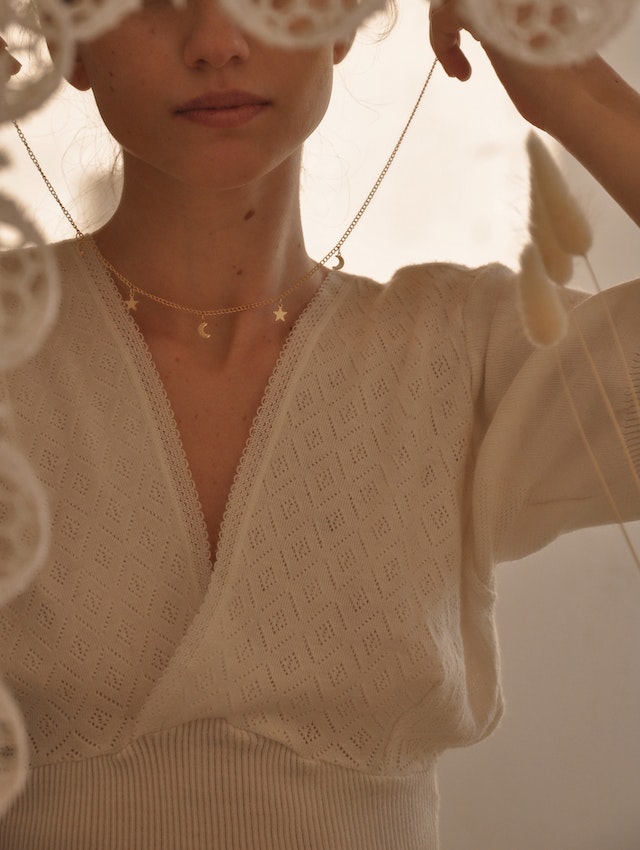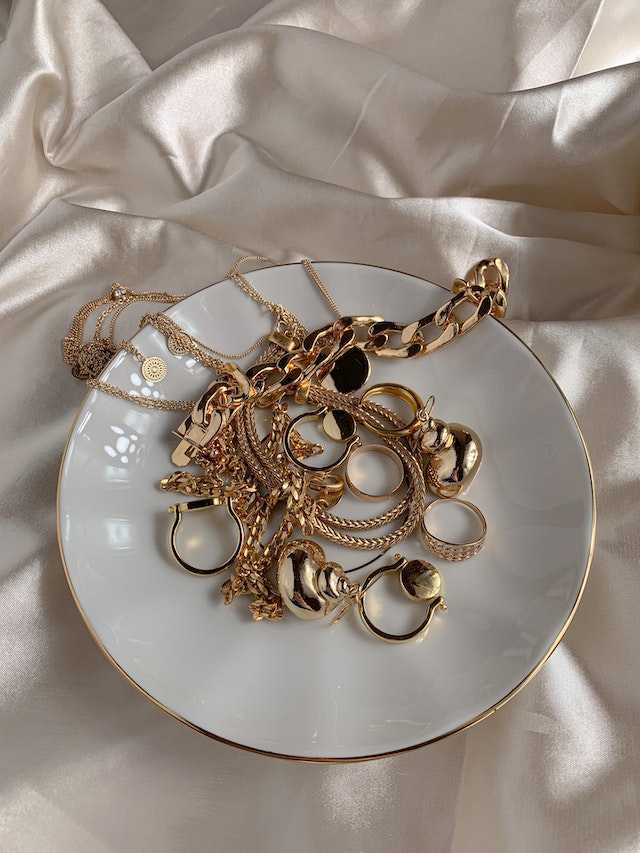Does 18K Gold Tarnish?
Does 18k gold tarnish? Many factors determine if alloys will oxidize over time. While pure 24k gold rarely tarnishes, lower karats like 18k have a higher susceptibility due to other alloys like copper, silver, and zinc. When exposed to oxygen, gold forms an oxide layer that prevents corrosion. However, in 18k gold the interaction between components can allow oxidation leading to tarnishing over time. This guide will cover whether 18k gold tarnishes and ways to prevent it.

Does 18K Gold Tarnish?
Yes, 18k gold – which is 75% pure gold and 25% other alloys – does have a higher likelihood of tarnishing compared to higher karats like 22k and 24k gold. Copper is the primary culprit, as it is more reactive and prone to oxidizing. Silver and zinc can also contribute to tarnishing, though to a lesser degree.
The rate of tarnishing for 18k gold pieces depends on various factors like:
- Exposure to things that trigger oxidation like perspiration, chemicals, and air pollution.
- Regular wear and tear that can rub off the protective gold oxide layer.
- Prolonged contact with skin oils, cosmetics, rubber, and leather.
- Environmental conditions like humidity and temperature fluctuations.
While most 18k gold jewelry should not visibly tarnish for many years, there are some actionable steps you can take to minimize the chances or severity of tarnishing.
How to Prevent 18K Gold from Tarnish?
The primary ways to reduce tarnishing of 18k gold include:
- Store your 18k gold jewelry in a fabric pouch or proper jewelry box when not in use to limit exposure to elements that can trigger oxidation.
- Clean your 18k gold jewelry regularly using a gentle soap and soft cloth to remove dirt, oils, and chemicals that build up over time.
- Avoid exposing your 18k gold to household chemicals, fragrances, hair sprays, and lotions that can lead to faster tarnishing.
- Periodically “re-polish” your 18k gold jewelry using a specialized jewelry polishing cloth to buff away any oxidation layer that has developed.
- Consider using an antioxidant spray specifically formulated for 18k and lower karat gold jewelry to inhibit oxidation. Re-apply as directed.
- Have your 18k gold professionally cleaned and checked periodically to repair, replate, or restore pieces showing signs of visibility tarnishing.
In summary, while 18k gold will be more prone to tarnishing compared to higher karat golds, there are many steps you can take to significantly reduce the likelihood and visibility of tarnishing for years. With proper care and storage, most 18k gold jewelry should retain its luster and aesthetic appeal for a long time.

FAQs about 18K Gold Tarnish
18k solid gold pieces are made to last forever. Solid 18K gold jewelry is the most expensive and high quality option as it doesn’t rub off or flake, and doesn’t tarnish. Gold actually increases in value over time, and solid gold jewelry has the best resale value.
It’s not recommended to wear 18k gold-plated jewelry in the shower or while swimming due to the potential risks of damage from water, soap, shampoo, hot water, steam, moisture, and humidity.
18k gold jewellery is durable enough for everyday use because it’s strengthened with metal alloys. But it’s not the most suitable gold caratage for everyday use. So, to prevent damage when wearing it every day, store it properly and clean it often.
Yes, it can. Even while 18k gold is of greater quality than 14k or 10k gold, it can oxidize and become discolored with time. Take precautions to shield your gold jewelry from the elements and clean your pieces frequently to keep them looking their best for as long as possible.

